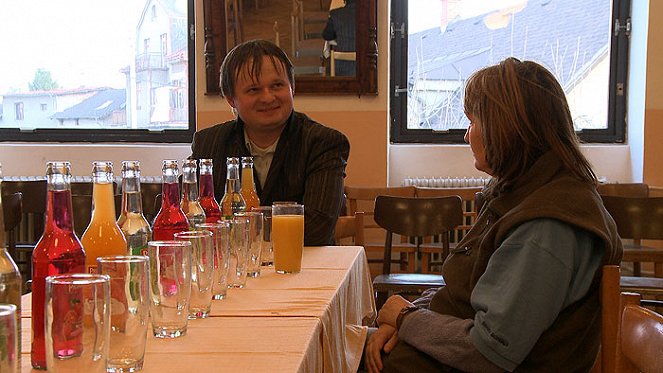Résumés(1)
"There is a major difference between Láska (Love) and láska. Some people always get it wrong but I have nothing to do with love," says Jiří Láska, a schizophrenic born to schizophrenic parents, on his way to a better life. A feature documentary film by Dagmar Smržová, director of the award-winning film Saving Edwards, tells the story of a gifted schizophrenic Jiří and his family. (texte officiel du distributeur)
(plus)Critiques (1)
A performative documentary conceived as an intimate diary composed of shots filmed by the director and Láska’s own videos. Given Láska’s mental illness, the emphasis placed on the emotional experience (picturesque landscape shots, sentimental musical accompaniment), which is legitimate in the given context, and the associated assumption of the viewer’s identification with the social actor are original. Where a more observational documentary would require only sympathy, The Story of Mr. Love makes it possible to see the world through the eyes of a man who perceives reality more sensitively than so-called “normal” people and, at the same time, possesses a more advanced ability to engage in self-reflection than many of his healthy peers. Láska is a remarkable person and the director’s effort to artificially elicit sympathy is somewhat counterproductive. Through the music and shot compositions, she induces in us a kind of reception that a perceptive viewer should easily be capable of even without the utilised “means of persuasion”. Furthermore, Smržová pointlessly attempts to cover an excessively broad range of issues and to fully observe a human being in his entirety, which simply isn’t possible over the course of just a few months and seventy minutes of film (the time-lapse method would have been more appropriate). It would have sufficed to choose and develop one of the many available motifs, whether Láska’s attempt to establish contact with the outside world through modern technologies or his search for a secure point that neither his grandmother, mother or more or less absent father can provide for him. The inability to find the key to the protagonist (which is evident in the exceedingly general nature of the film’s title) encumbers the viewing experience and raises the question of why this documentary was actually made and what we are supposed to take away from it. A good documentary needs more than just simple emotion over a human story and over the purity of feelings found on the fringes of our emotionally cold modern society (like in Love in the Grave). 60%
()

